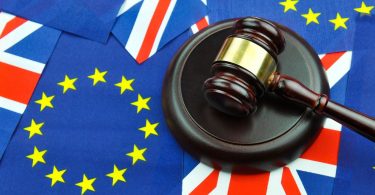Martin Howe QC is Chairman of Lawyers for Britain. An article based on this piece was published in the Sunday Telegraph on 15 September 2019.
On Tuesday 17 September 2019, the UK Supreme Court will begin hearing appeals from two conflicting judgments. The English High Court held that Boris Johnson’s advice to the Queen to prorogue (suspend) Parliament until a new session starting on 14 October is lawful; while the Inner House of the Court of Session — Scotland’s equivalent of the English Court of Appeal — held the opposite.
The English High Court Judgment
Lord Burnett, Lord Chief Justice, and two other senior English judges gave the High Court judgment. They decided that whether to prorogue Parliament, and for how long to prorogue it until the next Parliamentary session, are so inherently political in nature that there are no judicial or legal standards by which the courts are able to assess the legitimacy of the action taken.
They pointed out that the timing of prorogations has been used in the past by governments for reasons of political or legislative advantage. The post-War Attlee government artificially created a very short Parliamentary session of only a few days in order to over-ride resistance in the House of Lords against the reduction of its veto powers. So even if the length of the prorogation was designed to advance the government’s political agenda regarding Brexit, rather than just allowing preparations for the Queen’s Speech which will open the new session, that is not territory the courts can enter into.
The Court of Session Decision
The contrasting Court of Session decision was given by Lord Carloway, Scotland’s most senior judge, and two other senior colleagues who delivered concurring opinions. The Scottish judges were much more willing to wade into making an assessment of the political factors at work in the decision to prorogue. They concluded that the true reason for the timing and length of the prorogation was not just to prepare for the new session, but to “stymie” Parliamentary scrutiny of government action in the lead up to exit day on 31 October, and that such an intention was “unlawful”.
The problem with judges deciding what are good and bad political reasons
The problem with this approach is that it involves judges deciding what are good or bad political reasons. One very important reason in the national interest for Parliament not to sit until 14 October is so that the European Union should be made to realise that it must offer concessions in its negotiations with Boris Johnson in order to avoid a “no deal” exit. If Parliament were to be in continuous session across this period, the EU would assume that further moves in Parliament would undermine the government’s position even more than they already have. So why on earth should the EU make any concessions at all unless and until it becomes clear that Parliament cannot further interfere?
The Scottish judges disregarded this central and critical reason – preventing Parliament from undermining the UK’s international negotiating position – for Parliament not to sit during the lead up period. They emphasised instead the importance of Parliamentary scrutiny during a “vital period”. They noted the absence of a majority in Parliament for a “no deal” exit, and that a such an exit would have “adverse effects”, surely not matters which judges should take into account.
What right do judges have for saying that Boris Johnson’s reasons for proroguing Parliament are good or bad political reasons? Or for saying that it is preferable for Parliament to be in session, than for the UK’s international negotiating position to be strengthened? There is no law that says Parliament must be in continuous session, and no law which lays down what reasons a government may or may not properly take into account in deciding to prorogue Parliament. For judges to devise out of thin air a list of good and bad political reasons, and to decide that one reason should outweigh another, is to step outside the judicial role and enter inevitably into the realm of politics.
Conclusion
Some commentators have suggested that the Scottish decision was based on Scottish legislation – the Claim of Right of 1689 which was the parallel in Scotland of the English Bill of Rights of the same year, under which William III and Mary were invited to take the throne after the overthrow of James II. But Lord Carloway made clear that the court’s decision was based on common law principles which should be the same in Scotland and England, and not on any “speciality of Scots constitutional law”.
The Supreme Court will now have to decide between the conflicting approaches of these courts from different parts of the UK. They should resist the temptation to allow judges to approve or disapprove of government decisions for political reasons. It is difficult enough for the Prime Minister to conduct his negotiations with the EU when he has a squabbling Parliament back-seat driving. The involvement of judges would make it even worse.








